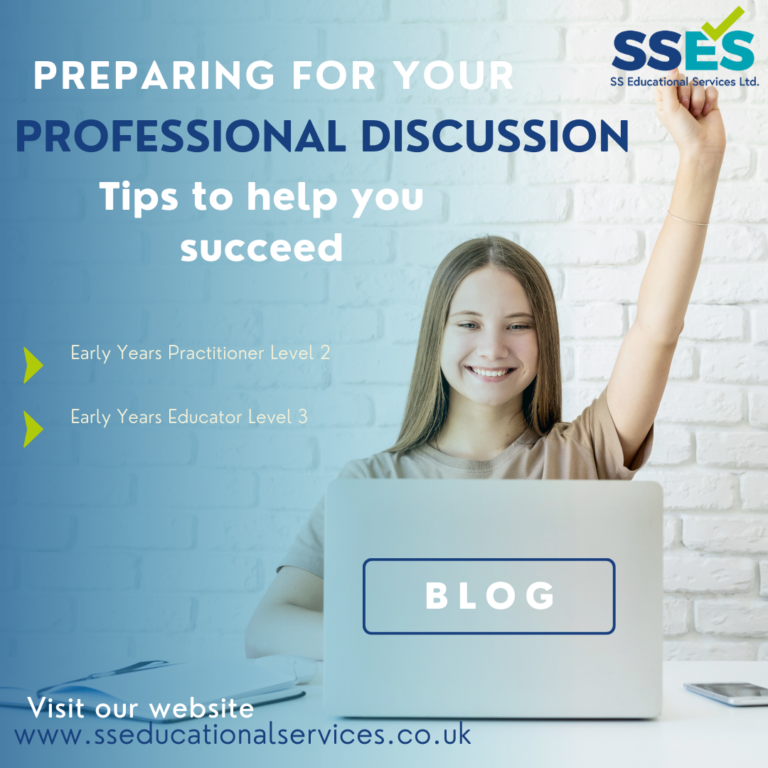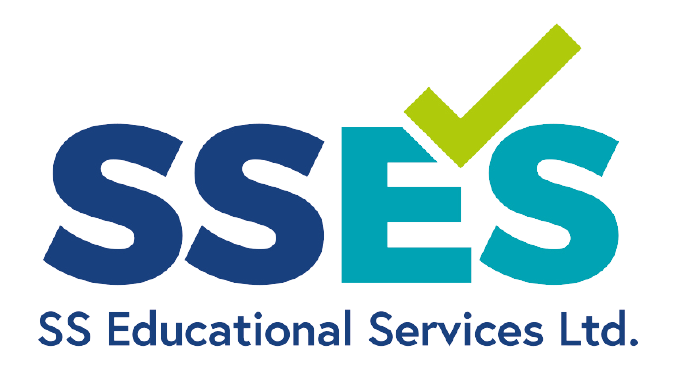Preparing for Your Professional Discussion: A Guide for Early Years Practitioner Level 2 and Early Years Educator Level 3 Candidates
The Professional Discussion is an integral component of the end-point assessment for those who are pursuing qualifications for the Early Years Practitioner Level 2 and Early Years Educator Level 3. We know that this can be a nerve-wracking experience for candidates, so we’ve put together this helpful guide to help you prepare, understand what the discussion entails, and ultimately succeed. Let’s dive in!
Understanding the Professional Discussion:
The Professional Discussion is an opportunity for you to showcase your knowledge, skills, and behaviours (KSBs) that you’ve developed during your Apprenticeship. It is typically a structured conversation between you and an independent assessor, and it’s designed to showcase your competence in your chosen field. The topics covered will usually relate to your work-based evidence, so it’s essential to be familiar with your portfolio and be prepared to discuss your experiences, achievements, and challenges.
Preparing Your Portfolio:
Your portfolio is the backbone of your Professional Discussion. It should include a range of evidence demonstrating your competence mapped against the KSBs, such as observations, and written accounts. To prepare, organise your portfolio in a logical manner, making sure all evidence is up-to-date, relevant, and directly linked to the KSBs outlined in your Apprenticeship standard.
Tip: Create a contents page and use clear headings to make it easy for you to navigate your portfolio.
Conducting a Self-Assessment:
Take the time to review the apprenticeship standard for your chosen qualification, paying close attention to the KSBs. Conduct a self-assessment by comparing your evidence to the requirements of the standard, and identify any gaps or areas where you may need to strengthen your knowledge. Doing so will help you understand what you may be asked about during the discussion and allow you to focus your preparation on the areas that need improvement.
Practising Your Communication Skills:
The Professional Discussion is an opportunity for you to demonstrate your ability to communicate effectively, both verbally and non-verbally. Practice speaking clearly and confidently about your experiences, and be prepared to engage in active listening when the assessor is speaking. Make sure to maintain eye contact, and use appropriate body language to convey interest and engagement.
Tip: Consider asking a colleague or mentor to role-play a Professional Discussion with you to help you become more comfortable with the format.
Preparing for Common Questions:
While the exact questions you’ll be asked during your Professional Discussion will vary, there are some common themes that you can expect to come up. These may include:
– Explaining how you’ve applied your knowledge and skills in real-life situations
– Describing how you’ve overcome challenges in the workplace
– Reflecting on your personal and professional development
– Discussing your understanding of key policies and legislation relevant to your role
Tip: Use the STAR (Situation, Task, Action, Result) method to structure your responses. This will help you provide clear and concise answers while demonstrating your ability to reflect on your experiences.
Staying Calm and Focused:
It’s natural to feel nervous before a Professional Discussion, but try to remember that the purpose of the assessment is to help you succeed. Stay focused on the KSBs you’re being assessed on, and trust in your preparation. Take deep breaths, and remember that it’s okay to pause and gather your thoughts before responding to a question.
Asking for Clarification:
If you’re unsure about a question or need further clarification, don’t be afraid to ask. The assessor is there to support you and help you demonstrate your competence. Asking for clarification shows that you’re engaged in the conversation and committed to providing accurate information.
Showcasing Your Professionalism:
Throughout the Professional Discussion, maintain a professional demeanour. Be respectful and courteous to the assessor, and remember to thank them for their time at the end of the discussion. Demonstrating professionalism not only leaves a positive impression but also reinforces your suitability for the role you’ve been training for.
Celebrating Your Success:
Finally, don’t forget to celebrate your achievements! Completing your Professional Discussion is a significant accomplishment, and it’s important to acknowledge the hard work and dedication you’ve put into your Apprenticeship. Whether you choose to celebrate with friends, family, or colleagues, take a moment to appreciate your success and the journey you’ve been on to get here.
Preparing for your Professional Discussion as an Early Years Practitioner Level 2 or Early Years Educator Level 3 candidate can be a challenging experience, but with the right approach and mindset, you can succeed. By understanding what the discussion entails, thoroughly preparing your portfolio, practising your communication skills, and remaining focused and professional throughout the assessment, you’ll be well on your way to demonstrating your competence and achieving your desired qualification.


